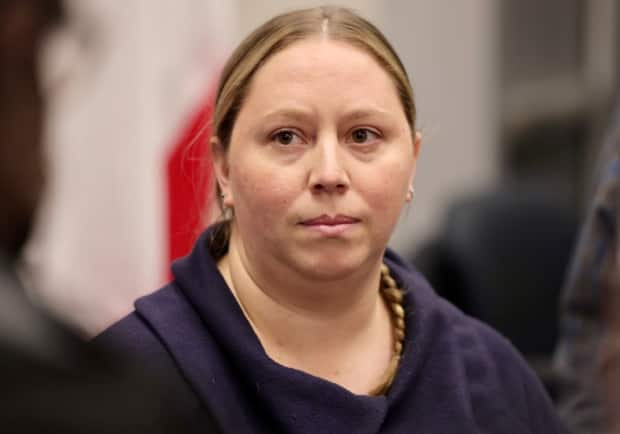N.S. patient says paying fees to obtain medical records after her doctor retires feels 'like a ransom'

It's bad enough to learn you're losing your family doctor, says one Nova Scotia woman, but being asked to pay hundreds of dollars to access years of medical records adds insult to injury.
"We have already enough distress right now knowing that we're losing our family doctor," says Cornelia Schneider. "So on top of that, [to] have to pay … is really upsetting."
Schneider learned her physician was closing her practice in the north end of Halifax in a letter earlier this month.
It came attached with a form from Docudavit Solutions, a records management company based in Toronto, saying her doctor had authorized the company to store her medical records and explained how she could purchase them.
Docudavit said it would charge a maximum fee of $103.50, including taxes, for each of the first two records, and $69 for each subsequent request.

Because Schneider wants to access records for herself, her spouse, and two children, the potential maximum fee would be $345.
"It's like a ransom, honestly," she told CBC News. "I have not consented for my medical records to go to a private company."
Records must be kept for at least 10 years
Doctors are legally required to keep medical records secure and accessible for at least 10 years after the last visit for adults, according to the College of Physicians and Surgeons of Nova Scotia. For minors, an additional 10 years after they turn 19 is required.
Dr. Leisha Hawker, president of Doctors Nova Scotia, says doctors don't get paid for reviewing, handling or copying records under the current fee system.
With the average family doctor having 1,500 patients, she said the workload involved with preparing files to be transferred to individual patients is often too much to take on.
"Most physicians choose to contract with a secure company that can meet the legislative privacy and security requirements," said Hawker.

In previous generations, it was common for retiring family doctors to be replaced by a new physician who would take on their patients and records.
But Hawker said about one in four family doctors in the province are already over the age of 60 and, when they retire, Nova Scotia's doctor shortage means its unlikely they'll be replaced quickly.
"Patients and family physicians are both in a really difficult position right now," she acknowledged.
12 doctors quit since last January
Nova Scotia Health says that of the 12 family doctors in the province who've resigned since January 2022 — with a combined caseload of 13,600 patients — only one vacancy has been filled.
And that number doesn't include the thousands of patients at practices set to close later this year like the South End Medical Clinic.
In her work at the North End Community Health Centre and Regency Park Addiction Clinic, Hawker says she sees first-hand the challenges patients face accessing medical records after losing their family physicians.
Many of her patients are low-income and unable to pay for their records, leaving Hawker and other physicians no choice but to try and piece together a medical history through calls with pharmacists and hospital records. But that info doesn't always provide the full picture.
"The family doctor is often the health-care provider that knows the patient the very best," said Hawker. "They'll have context about the psychosocial determinants of health that I might not be able to get access to from hospital records, for instance."
Won't withhold medical records
In a guide to closing a medical practice prepared by Doctors Nova Scotia, the organization says physicians who are unable to store records on their own can "arrange to have the records transferred to a storage company," and lists Docudavit Solutions as one option.
The company's president, Sid Soil, says Docudavit will not turn away anyone for lack of funds.
"We've never refused to provide a patient with a copy of their records due to their inability to pay the fee," he said.
Soil said the company's maximum fee of $103 per patient is based on the Personal Health Information Act's basic fee of $30, and then on top of that, additional charges for activities such as photocopying documents not listed in the regulations. If a client has trouble paying the fee, Soil says they can discuss alternative payment options.
But the form from Docudavit given to Schneider by her family doctor only states that individuals who wish to receive or transfer their records send an e-transfer, cheque or provide their credit card information to the company and return the completed form via courier.
Hawker said learning the company is willing to negotiate comes as a surprise.
"That hasn't been my experience, but certainly patients could be supported in trying to advocate for themselves in the future," she said. "If I have another patient where this issue arises, I'll ask my social worker to help advocate for the patient directly with the company to see if we're able to make some headway there."
More family doctors needed
For Soil's part, he said he understands the frustration some patients feel at having to pay for their records, but his company's practices aren't the problem.
"We're the last part in the process. Everything that came before us is the real issue that we should deal with," he said.
"Probably 30 or 40 years ago, what we're talking about didn't need to exist because a doctor would close their practice and there'd be a new doctor to take over … but we're in a situation where that's not the case anymore."

Meanwhile, Hawker is hopeful upcoming changes might make the issue of access to medical records a moot point in the future.
In February, Nova Scotia announced the signing of a $365-million contract to bring electronic health records to the province. The system, which the province is calling one patient, one record, will give physicians at hospitals access to patient data in one place.
It's set to begin rolling out across the province in two years, but the initial deployment won't include records from family doctors. Nova Scotia Health says those patient records will eventually be included.
Until then, thousands of Nova Scotians with family doctors on the verge of retirement with no replacement in sight will likely continue to be asked to pay up if they want to obtain their medical records.
MORE TOP STORIES


